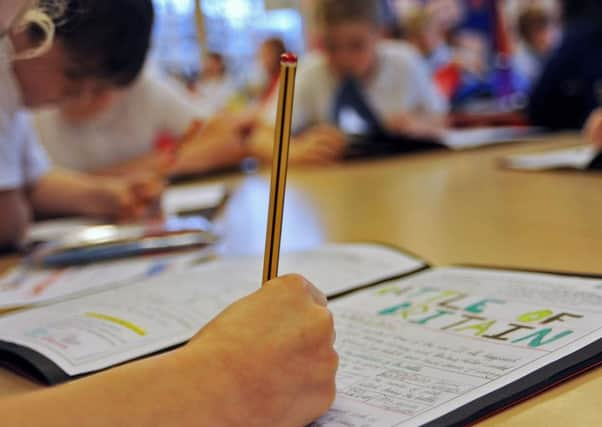Plea to politicians as rural areas face education funding squeeze


Some smaller secondaries in North Yorkshire will see maximum funding potentially fall from £325,000 a year to about £175,000, North Yorkshire County Council has said, as it takes the unprecedented step of admitting difficult decisions will have to be made. It also has “real concerns” about its high-needs funding, it says, impacting on children with special education needs and disabilities (SEND).
“Despite assurances about funding schools in rural areas, the Government’s proposed new formula effectively downgrades the support available to rural secondary schools,” said county councillor Patrick Mulligan, executive member for education, in a letter sent to all MPs.
Advertisement
Hide AdAdvertisement
Hide Ad“At the same time, high-needs funding for children with special education needs and disabilities will rise by only 0.3 per cent in 2018-19 despite demand rising by 15 per cent.
“This is, in effect, a real-terms decrease in funding, and will place further pressure on special school budgets. Mainstream schools and academies are also likely to see funding reduce for SEND support.”
The authority last week agreed a consultation on redrawing its provision for children and young people with special educational needs, faced as it is with a projected overspend of £4m next year.
The concerns over rural secondaries follow warnings from the National Union of Teachers last month that rural schools are under threat as they struggle to survive squeezed budgets. Union leaders called for them to be given protected status, to protect their existence and recognise their significance for the survival of their communities.
Advertisement
Hide AdAdvertisement
Hide AdNow it’s emerged the collective surplus for all of North Yorkshire’s 350 schools, in effect their ‘rainy day’ fund, has almost halved from £33m in March 2016.
There are “striking” imbalances in the funding from central Government under the national funding formula, Coun Mulligan said, with a weighting towards urban deprivation.
The average funding for a secondary-school pupil in Hackney in London next year will be £7,480, he said, compared to £4,897 in North Yorkshire.
“Rurality has to be taken into account, there should be different weighting and not a ‘one-size-fits-all’ approach,” he said. “We get some rural funding but it isn’t sufficient. Almost 90 per cent of our schools are good or excellent schools. The quality is there – but we are facing financial pressures. We’ve seen signs that we are very worried about.”
Advertisement
Hide AdAdvertisement
Hide AdHoward Emmett, assistant director for strategic resources in the Children and Young People’s Service, said the authority had broadly welcomed changes under the national funding formula, which brought in additional money.
But, he said, overall it was insufficient when coupled with rising costs, alongside an “unprecedented” demand from young people with special educational needs and disabilities. “We’re in the position of predicting quite significant financial pressure,” he said. “Whilst our view is that there is simply insufficient funding, we are an authority that has always tried to live within its means. That leaves us looking at how we distribute the pot.”